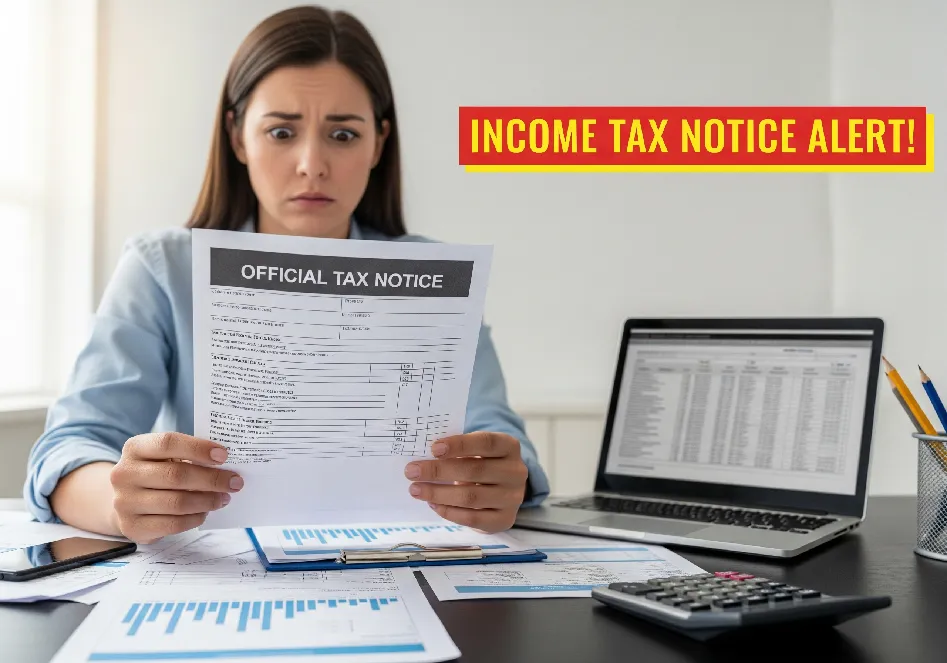Receiving an income tax notice as a salaried employee can be intimidating. However, with the right knowledge and precautions, you can respond accurately and avoid unnecessary stress. This guide will help you understand the types of tax notices, common mistakes, step-by-step responses, preventive measures, and expert tips to stay compliant with the Income Tax Department.
What is an Income Tax Notice?
An income tax notice is an official communication from the Income Tax Department indicating discrepancies or requiring clarification on your filed Income Tax Return (ITR). While receiving a notice can be worrying, it doesn’t always mean wrongdoing; often, it may be a minor mismatch in income reporting, tax deductions, or documentation.
Stock Splits Explained: How Adani Power’s Split Impacts Investors
Common Reasons Salaried Employees Receive Notices
- Mismatch between Form 16 and Form 26AS
- Unreported income, including freelance work, interest income, or rental income
- Incorrect deduction claims
- Late filing of ITR or non-filing
- Errors in bank details or tax computation
Types of Income Tax Notices
Understanding the types of notices helps you respond appropriately:
- Notice u/s 139(9) – Defective return notice
- Notice u/s 143(1) – Intimation under processing of ITR
- Notice u/s 143(2) – Scrutiny notice
- Notice u/s 148 – Income escaping assessment notice
- Notice u/s 142(1) – Notice to furnish additional information
Common Mistakes to Avoid
Many salaried employees make simple mistakes that trigger notices. Avoid these errors to prevent complications:
- Ignoring Form 26AS: Always reconcile Form 16 with Form 26AS before filing ITR.
- Incomplete Income Reporting: Include all taxable income sources.
- Wrong Deduction Claims: Claim only eligible deductions supported by documents.
- Late or Non-Filing: File ITR within the due date to avoid penalties.
- Ignoring Notices: Never ignore notices; timely response is crucial.
Step-by-Step Guide to Responding to a Notice
If you receive a notice, follow these steps carefully:
- Read the Notice Carefully: Identify the notice section and understand the issue.
- Gather Relevant Documents: Form 16, Form 26AS, bank statements, proofs of deductions.
- Verify Your ITR: Check for discrepancies or errors in your filing.
- Prepare a Response: Draft a clear and factual reply addressing the issue.
- Submit Response Online: Log in to the Income Tax e-filing portal and submit your response.
- Seek Professional Help: If unsure, consult a CA or tax expert.
Preventive Measures for Future
Proactive measures can reduce the chances of receiving notices:
- Maintain Accurate Records: Keep track of salary slips, interest income, and investment documents.
- File Returns Early: Avoid last-minute rush to reduce errors.
- Double-Check Deductions: Ensure eligibility for claimed deductions under sections like 80C, 80D, 80G.
- Monitor Tax Credits: Reconcile TDS entries with Form 26AS regularly.
- Stay Updated: Keep track of tax law changes annually.
Real-Life Examples
Understanding real scenarios helps in learning:
- A salaried employee claimed extra deduction for insurance without documentation. The IT department issued a notice u/s 143(2). After providing the correct proof, the issue was resolved without penalty.
- Another employee missed reporting interest income from a fixed deposit. By replying promptly with bank statements, the notice was closed after paying minor interest charges.
Tips for Fast Resolution
- Respond within the stipulated deadline to avoid penalties.
- Keep your communication polite and factual.
- Attach clear supporting documents wherever required.
- Use online portals for submission to save time.
- Maintain copies of all communications for future reference.
FAQs
1. What happens if I ignore an income tax notice?
Ignoring a notice can lead to penalties, interest, or further scrutiny. It’s always advisable to respond promptly.
2. Can a salaried employee get a notice for small mistakes?
Yes, even minor discrepancies in Form 16, TDS, or deductions can trigger notices.
3. Is professional help necessary?
While not always necessary, consulting a tax professional can help ensure accurate response and peace of mind.
4. How can I avoid future notices?
Maintain records, reconcile Form 26AS, file ITR on time, and claim only eligible deductions.
Conclusion
Receiving an income tax notice as a salaried employee doesn’t have to be stressful. By understanding common mistakes, responding timely, and taking preventive measures, you can resolve issues quickly and stay compliant. Always stay informed, keep records accurate, and don’t hesitate to seek professional advice when needed.
